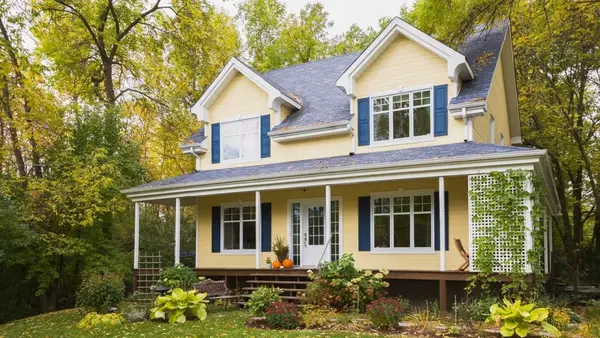Moving? Consider These 6 Factors When Preparing Your Budget


Perhaps you’re looking for a fresh start, a place where you can search for a new way of living. Or maybe you’re a remote worker who’s decided to uproot to increase the odds of finding a home or rental that matches your budget. Or maybe you’ve found it's important to be closer to the people and places that make you happy. Whatever your reasons for moving, it's a good idea to prepare yourself financially as far in advance as you can to make your move less stressful. If your stress is related to the bigger financial picture involved in moving, this post is for you. Read on to learn what factors you should consider when planning your move, from beginning to end.
1. Check your credit scores
Credit scores are super important — they can influence how much your housing will cost — or even whether you’ll be able to rent or buy the home you want. Concerns about credit scores and the disproportionate impact they have on consumers with limited credit histories have led to local rentals laws that limit their use. That said, landlords and lenders both use them. If you’re buying a home, credit scores will help determine whether you qualify for a mortgage and what interest rate you’ll pay on it. It could take a few months to boost your scores, and it’s worth taking the time to do that, especially if you’ve fallen behind on your bills or haven’t had time to build a credit history. If you’re unfamiliar with credit scores, the Consumer Financial Protection Bureau is a good place to start for basic information, links to getting free copies of your credit reports, and troubleshooting issues. Credit scores can have wrong or outdated information that works against you, so make sure they reflect reality.
2. Compare the cost of putting a roof over your head here and there
A Zillow® analysis of United Van Lines move data shows that movers tend to move to metro areas that are less expensive and have less competition from other home buyers. This trend has intensified in the past couple of years as housing affordability declined. Unless you're getting paid to move, spend some time online looking at properties where you live and where you’re thinking of moving. Consider the following:
If you're renting...
Zillow has a tool that allows you to quickly assess how many rental properties in the city you're moving to fall into your affordable range. Just enter your monthly take-home income, debts and a location, and see the number of affordable apartments currently available. (The tool considers a home to be affordable if rent consumes no more than 40% of your income before taxes.) For instance, a single person taking home $3,000 a month and paying $500 a month toward debts could have more than a thousand affordable rentals to choose from in St. Louis, but only about a dozen in Boston. Explore Zillow’s Rent Affordability Calculator
If you're buying...
You can compare the cost of a typical home in cities around the country by using Zillow’s home value index. If you have a certain neighborhood in mind, you also can search by zip code. To drill down on homes in your price range, use the general home search. Keep in mind that in addition to your mortgage, you will have to pay property insurance and property taxes. (Most mortgage lenders will add those costs to your monthly payment.) If you’re putting down less than 20% toward the purchase, your lender will likely require you to pay for private mortgage insurance until your equity in the home reaches 20%. For sizable loans, that insurance can add hundreds of dollars to your monthly cost.
3. Account for extra expenses in your first few weeks or months
There’s likely to be a period of transition from the old to the new. Unless you’re lucky enough to have friends or family to stay with or an employer that’s providing a housing allowance while you look for a new home, you’re going to need a place to stay while looking or waiting to close.
Extra costs to consider for renters
Upfront costs of moving into a new apartment. This may include application fees, security deposits and background checks.
Pet fees. If you have a pet, you may be required to pay a higher security deposit and/or an extra monthly fee.
Utilities not included in the rent.
Alsofactor in any deposits you might have to pay before a utility company provides service. Utility costs can vary widely between cities, and bills also will vary based on the size of your home and weather patterns that affect consumption. If you’re likely to be running air conditioning or heating 24/7, things can get expensive quickly.
Appliances. Not all rentals come with a refrigerator, so make sure your new home will be equipped with one. Buying even a basic fridge new can run you hundreds of dollars.
Extra costs to consider for buyers
A basic set of tools for home maintenance. If you don’t want to spend on tools you won’t use frequently, you can always borrow a lawnmower or hedge trimmer from a neighbor or friend, or save money by renting one cheaply if you’re lucky enough to live in a place with a tool library. See our list of tools every homeowner needs.
Utility costs. This could include electric/gas, water and trash. Factor in setup costs for cable or internet if the home isn’t already wired.
Appliances and furnishing. Consider which appliances will need replaced in older homes that haven’t been updated. Factor in major furnishings, and whether you'll buy new, or pay to move and store what you have.
HOA fees. Condos and homes in planned communities usually have homeowner associations (HOAs) that charge monthly or annual dues for the maintenance and repair of common areas.
4. Compare taxes and fees
Each state, county and municipality has its own way of keeping the lights on, the roads maintained and the services running. Some states rely on income taxes while others rely primarily on sales tax and other fees to provide essential services.
How those taxes pencil out for you in a move between states will depend on how taxes are levied. Compare what you’re currently paying with what you can expect to pay in your new home with this state-by-state overview provided by The Tax Foundation, a not-for-profit think tank.
Detailed information on what you can expect to pay in any given state is available through the individual state’s revenue department. If you own a business or need even more detailed information on sales taxes, corporate tax rates, excise taxes and the like, the Federation of Tax Administrators — a membership group of state tax administrators — has you covered.
5. Compare lifestyle costs
It’s no secret that some places are more expensive than others. To see how far your dollars could go in your new home compared to where you live now, use this calculator from the Federal Reserve Bank of St. Louis. If you’re moving from a rural area or suburb to a city or vice versa, you might also consider the cost of transportation. Trading a rural or suburban life for an urban one could eliminate the need for a car. If you’re moving out of a city to a place without frequent and reliable public transit, you may want to factor in the cost of buying, registering and/or owning a car.
6. Emergency reserves
If plan A doesn’t work out, it’s always good to have a backup plan that includes an emergency cash reserve. Doing so can help to dial in on the things you think might hold you back.
Recent Posts

Discover Luxurious Living in Hoschton: A Closer Look at 173 Tennessee Walker WAY

A Complete Guide to A Home Equity Line of Credit (HELOC)

Government Home Loans: Make Homeownership Possible

10 Tips for Organizing Your Whole House

What To Know About Smart Home Tech

8 Value-Adding Home Improvements You Can Do for $1,000 or Less

Health and Wellness Upgrades That Make Your Home Better

How to Find an Apartment: 11 Ways to Beat the Hot Rental Market

5 Things to Look for in a Rental Listing

6 Tips for Finding a Pet-Friendly Rental
